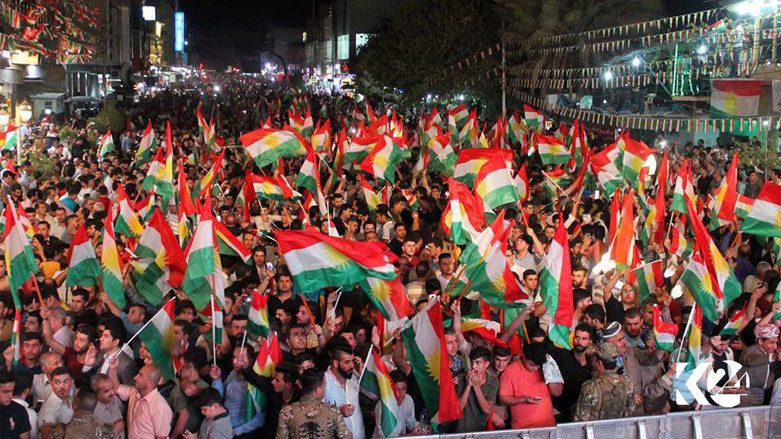McGurk plan disclosed, gets tepid White House backing

WASHINGTON DC, United States (Kurdistan 24) - On Friday, the Financial Times revealed the details of the “alternate plan” that US Special Envoy to the Global Coalition to Defeat the Islamic State (IS) in Iraq and Syria, Brett McGurk, brought to the Kurdistan Region.
The plan, which President of the Kurdistan Region Masoud Barzani appeared to have rejected on Thursday after meeting with McGurk and his delegation, contained no provision for holding a referendum (although State Department Spokesperson Heather Nauert subsequently reaffirmed that the problem was “the timing” of the referendum.)
Rather, McGurk proposed a new set of talks. As the Times explained, the Kurdistan Regional Government (KRG) should cancel the referendum and negotiate with Baghdad: over “budget and territorial” issues as well as “the distribution of oil revenues.”
Kurdish leaders “dismissed” the plan. ‘We have heard such promises before, and they came to nothing,” an official said.
“The US and UK had put ‘extreme’ pressure” on President Barzani, the Times explained but he seemed only “to double down” on his commitment to the referendum when he addressed a pro-independence rally later on Thursday.
The Kurdish position remained firm on Friday as the independence rallies continued, regularly attended by tens of thousands of people.
The Kurdish parliament also met on Friday and voted to approve the referendum.
The head of the Kurdistan Region Security Council, Masrour Barzani, issued a series of tweets, hailing the “historic” decision, affirming, “We expect the international community to respect decisions by the people of Kurdistan.”
When the day was long over in Erbil, in Washington, however, the Office of The White House Press Secretary issued a statement: “The United States does not support the Kurdistan Regional Government’s intention to hold a referendum later this month.”
The vote is just ten days away; plans are far advanced; the Kurdish leadership has made its position clear, and the Kurdish people have shown their support in successive referendum rallies.
The White House statement, nonetheless, continued, “We, therefore, call on the Kurdistan Regional Government to call off the referendum and enter into serious and sustained dialogue with Baghdad.”
An informed Washington source, friendly to the Kurds, dismissed the statement as “no big deal.” It came out late on Friday afternoon, as the weekend began. If the White House had wanted to make a vigorous point, the Press Secretary would have read it on camera at her briefing earlier that day.
Paul Davis, a former analyst of Kurdish affairs at the Pentagon, attributed it to “Obama hold-overs” in the new administration. Indeed, he wrote to the White House, “I feel that you are listening to the wrong people, who are trapped in old and outdated beliefs.”
On the campaign trail, Donald Trump hailed the Kurds, “They’ve proven to be the best fighters. They’ve proven to be the most loyal to us. . . . We should be working with them much more than we are.”
Early in his presidency, Trump warned that Iran was “taking over more and more of Iraq.”
Those earlier views might help explain the White House’s muted support for McGurk’s diplomacy.
Editing by G.H Renaud
